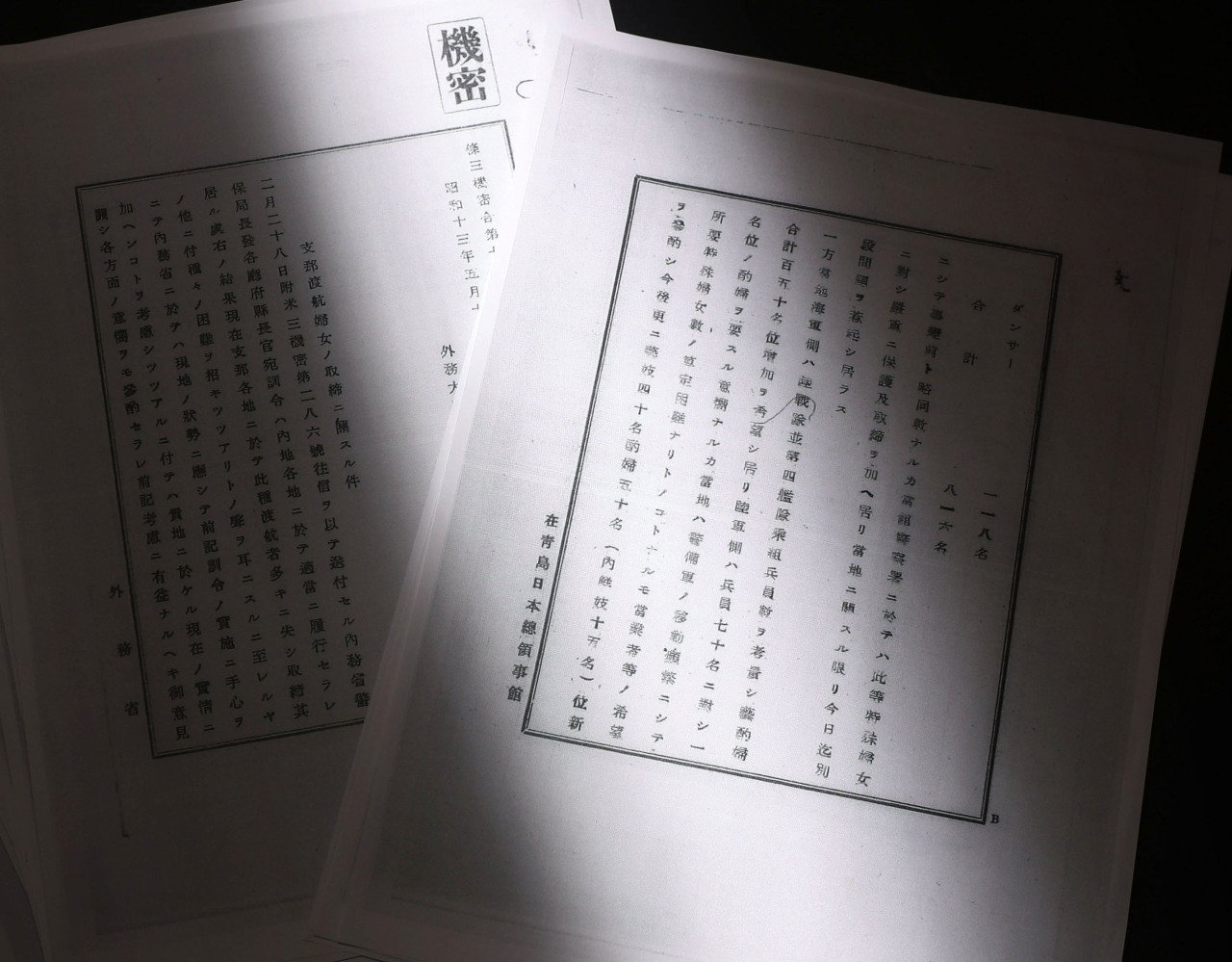Wartime documents show Japan‘s role in recruiting comfort women: Kyodo
By YonhapPublished : Dec. 7, 2019 - 16:30
Wartime documents showed the Japanese government was involved in forcing Korean women to serve as “comfort women” at Japan’s military brothels during World War II, Kyodo News reported Friday.
The Japanese army asked that there be one comfort woman for every 70 soldiers, Kyodo reported, citing the documents collected by the Cabinet Secretariat between April 2017 and March 2019.
The Japanese army asked that there be one comfort woman for every 70 soldiers, Kyodo reported, citing the documents collected by the Cabinet Secretariat between April 2017 and March 2019.

The documents indicate that the Japanese military played an active role in recuiting women, Kanto Gakuin University Professor Hirofumi Hayashi was quoted as saying in the report.
In 1993, then Chief Cabinet Secretary Yohei Kono acknowledged the military‘s involvement in recruiting comfort women, in many cases against their will, and apologized to the victims.
Still, the issue remains a major source of friction between Seoul and Tokyo, along with disputes over South Koreans’ forced labor during the war and the sovereignty of Dokdo Island.
Many Korean women were forced into sexual slavery by the Japanese military during World War II. Some historians put the number as high as 200,000. Korea was under Japan‘s colonization from 1910-45.
Last year, South Korea’s Supreme Court ordered Japanese firms to compensate Korean victims of forced labor. Japan then restricted exports to South Korea of key materials in an apparent retaliation against the court ruling.
Dokdo -- which lies in the East Sea that divides the Korean Peninsula and Japan -- has long been a thorn in relations between the two countries. South Korea keeps a small police detachment on the islets, effectively controlling them. Still, Japan repeatedly claims sovereignty to the rocky outcroppings. (Yonhap)
In 1993, then Chief Cabinet Secretary Yohei Kono acknowledged the military‘s involvement in recruiting comfort women, in many cases against their will, and apologized to the victims.
Still, the issue remains a major source of friction between Seoul and Tokyo, along with disputes over South Koreans’ forced labor during the war and the sovereignty of Dokdo Island.
Many Korean women were forced into sexual slavery by the Japanese military during World War II. Some historians put the number as high as 200,000. Korea was under Japan‘s colonization from 1910-45.
Last year, South Korea’s Supreme Court ordered Japanese firms to compensate Korean victims of forced labor. Japan then restricted exports to South Korea of key materials in an apparent retaliation against the court ruling.
Dokdo -- which lies in the East Sea that divides the Korean Peninsula and Japan -- has long been a thorn in relations between the two countries. South Korea keeps a small police detachment on the islets, effectively controlling them. Still, Japan repeatedly claims sovereignty to the rocky outcroppings. (Yonhap)






![[KH Explains] How should Korea adjust its trade defenses against Chinese EVs?](http://res.heraldm.com/phpwas/restmb_idxmake.php?idx=644&simg=/content/image/2024/04/15/20240415050562_0.jpg&u=20240415144419)












![[Today’s K-pop] Stray Kids to return soon: report](http://res.heraldm.com/phpwas/restmb_idxmake.php?idx=642&simg=/content/image/2024/04/16/20240416050713_0.jpg&u=)